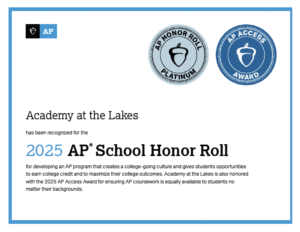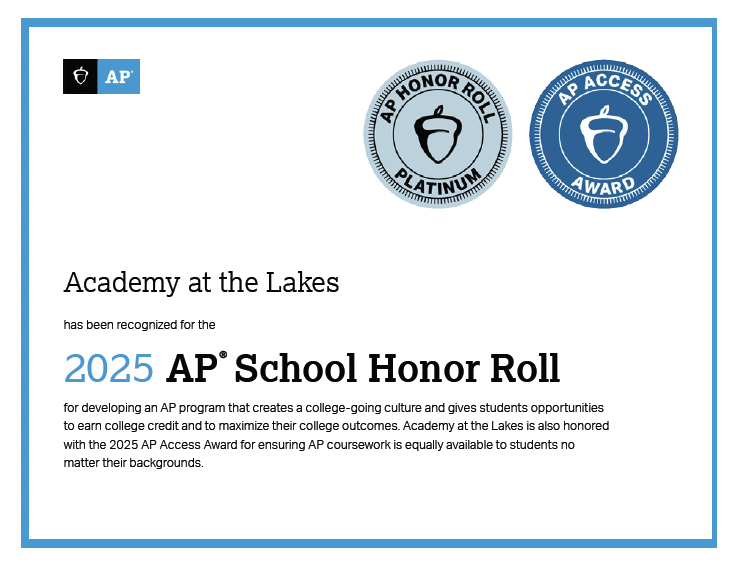Words by Kim Vreeland, Director of Marketing and Communications
Ask high school juniors (and their parents) what’s on their minds, and they’ll likely share their concern about the college application process. Over nearly three decades of teaching high school students, I’ve witnessed dramatic changes— everything from the onset and popularity of electronic applications to the use of predictive modeling tools in guiding admissions decisions. Increasing numbers of applications, higher GPAs, expanded service requirements, and decisions around early action, early decision, and test-optional policies leave many students feeling uncertain. Amid this uncertainty, students feel immense pressure to create a compelling college essay.
And it shows.
A Google search for “How to write a college essay” will yield hundreds of results, everything from Forbes’ How Not To Write Your College Essay to College Essay Guy’s Why You Don’t Have to Write about Trauma in Your College Essay to Stand Out—and What You Can Do Instead. Scroll social media, and you’ll come across just as many tips from college consulting services such as The College Navigators.

The truth is that college applicants don’t need to engage in extensive research to write a strong college essay. In search of the secret to success, students often overlook the most valuable resource— themselves. Everyone has a story.
Discover Your Story
It’s all about you!
- Collaboration matters. Brainstorming with a trusted confidante can spark inspiration and uncover meaningful stories.
- Personalness matters. Tell your story. Admissions teams want to learn more about you, and writing about someone else prevents them from getting to know you more deeply.
- Authenticity matters. Resist the urge to shape yourself into what you think the admissions team wants to see. Be true to who you are. Let your narrative reflect your values and character.
- Openness matters. Take risks in sharing your story. Vulnerability and openness humanize your story and connect with readers.
- Optimism matters. Even when addressing challenges or obstacles, focus on resilience, hope, and growth rather than dwelling on hardships.
Craft a Powerful Voice
Watch your language!
- Choose your words wisely. Don’t underestimate the power of language. Choose vivid, powerful language to create an emotional connection.
- Write conversationally and authentically. Your essay should sound like you. Avoid flowery, overly complex, or artificial sounding language that overshadows your personal style and voice.
- Set the right tone. Use words that reflect sincerity and respect, avoiding language that might come across as negative. Shared pronouns such as “we” or “us” build trust and create a sense of connection with the reader.
- Arrange your words with purpose. Intentionally arrange words and sentence structure. Creative sentence structure reveals your command of mechanics.
- Aim for sophistication. A memorable essay is balanced – sophisticated, yet warm and engaging. Show your command of language through polished grammar and mechanics while not losing your authentic voice.
Build a Clear Structure
Be intentional!
- Set the stage (Introduction). Begin with background context that introduces your message and connects to the prompt. Don’t delay expressing your message. You will circle back to it at the end of your essay.
- Share a moment (Body). Include a specific experience, a moment in time, that vividly illustrates your message.
- Transition to the universal (Conclusion). About two-thirds into your essay, emphasize the broader message and its relevance. What have you learned and how have you grown?
- Think of a thread. Imagine a continuous thread running through your essay, keeping each idea connected to your core message.
Experiment with Creative Elements
Take a fresh approach!
- Vary points of view. Engage your reader by varying points of view, creating nuanced understanding and varied insights. Doing so demonstrates an ability to think from a variety of perspectives.
- Experiment with structure. Writing a narrative in non-chronological order can create suspense and add depth.
- Include flashbacks. Flashbacks allow writers to incorporate depth into their stories. You can deepen context and characterize.
- Create vivid imagery. Figurative language creates strong emotional connections. Personifying abstract ideas displays sophistication and an ability to manage abstract concepts.
The college application process can undoubtedly be stressful, but it’s also an exciting chapter in a student’s life— a chance to reflect on his or her high school journey. While the guidelines above offer helpful suggestions, the most important measure you can take is to give admissions counselors a genuine glimpse into who you are. Be yourself. Never underestimate the power of your story.
Some DO’s and DON’Ts
From Tufts University: “Remember, your goal isn’t to tell us a story that we haven’t heard before (we read a lot of stories!) but rather, to share your perspective and experiences with us and show us how they’ve shaped you into the person you are today—and who you might want to become!”
From Vanderbilt University: “Write like you speak. This also means you should use words and phrases that you would actually use in everyday conversation.”
From Yale University: “Take the opportunity to tell the admissions committee something they wouldn’t know from other parts of the admissions application.” There’s no formula for a successful college essay. The best pieces are thoughtful, reflective, and convey the student’s own voice.”
From Florida State University: “Don’t tell someone else’s story. This is not your chance to write about someone else or a family member. It’s your chance to write about yourself.”











